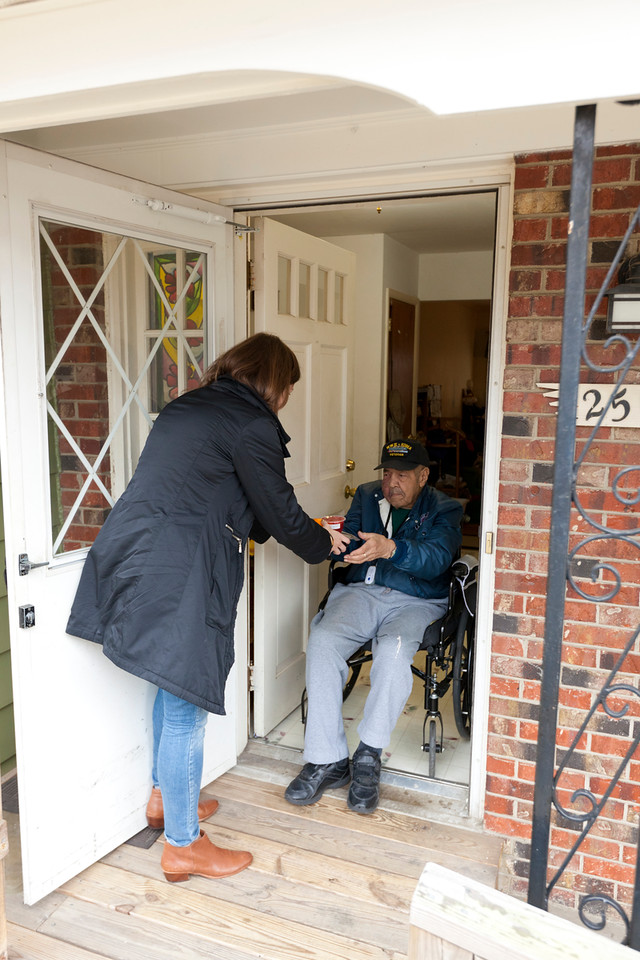Purchasing healthy foods can be hard, especially if you’re a senior living off of a fixed income. Sometimes, tough choices need to be made when it comes to paying expenses and buying nutritious groceries.
While shopping for healthy food items isn’t always easy, older adults need to get the appropriate amounts of nutrients. A person’s diet has a huge effect on quality of life and the ability to live independently at home.
Five and a half million adults age 60 and older, or 7.7% of the senior population, face food insecurity. Individuals in this population do not get a regularly sufficient amount of nutritious foods.
The prevalence of senior hunger in America reflects the growing needs of our aging population. To address nutrition in older adults, both federal and community agencies have created programs that promote healthy eating.
#1 Supplemental Nutrition Assistance Program
The National Council on Aging funds the largest federal nutrition program called SNAP, or the Supplemental Nutrition Assistance Program. SNAP benefits low-income families and individuals who face food insecurity.
SNAP provides eligible individuals with funds that can be used to buy groceries at participating stores. The program helps meet income gaps that can prevent a person from being able to buy healthy foods.
After enrolling in SNAP, you are allotted a certain amount of money that is loaded onto an Ohio Direction Card. The card works like a debit card, and unused funds can be rolled over each month.
Senior SNAP benefits can be used to buy groceries at participating food stores and farmers’ markets. Eligible items include fruits and vegetables, bread and cereals, and meats and poultry. You cannot use SNAP for things such as alcohol, tobacco, prepared hot foods, non-food items, pet food, or vitamins.
Earning Produce Perks
When you shop with your SNAP benefits, you can earn up to $20 in free fruits and vegetables on your Ohio Direction Card. Simply present your card and swipe for the amount you want to spend.
Receive $1 tokens to spend with any vendors with eligible products and receive a dollar for dollar match of up to $20 in Produce Perks to spend on fruits and vegetables. It’s a healthy way to stretch your SNAP funds further.
#2 Ohio Senior Farmers’ Market Nutrition Program
The Department of Aging provides eligible seniors age 60 and older with the opportunity to receive up to $50 in coupons to be used at participating farmers’ markets and roadside stands. Coupons can be redeemed for Ohio-grown vegetables, fruits, herbs, and honey.
Applications for Senior Farmers’ Market Nutrition Program coupons are usually available in the spring. When you use your coupons, you can also use Produce Perks from the SNAP program to double your dollars.
#3 Commodity Supplemental Food Program
The Commodity Supplemental Food Program, sometimes called the “senior box program”, serves low-income seniors age 60 and older. The program helps aging adults who often face choosing between food and other basic needs.
The food boxes are designed to supplement needed sources of nutrients typically lacking in an eligible person’s diet. They contain USDA foods such as protein, cereals, rice, fruits, vegetables, and grains.
#4 Meals on Wheels
Meals on Wheels provides a nutritious meal, companionship, and a watchful eye on the health and safety of seniors. It is the only federally supported program designed specifically to meet the nutritional and social needs of our aging population.
Through the Meals on Wheels program, you receive healthy, home-delivered meals and wellness checks. The program is helpful for those who have a hard time shopping for food, preparing meals, or have been recently released from a hospital stay.
Meals on Wheels of Northeast Ohio, a program of VANTAGE Aging, provides home-delivered meals and congregate dining options in Stark, Summit, and Wayne Counties. If you or a loved one is interested in learning more about Meals on Wheels, please contact us at 330-515-5605 or referrals@vantageaging.org.
*The information in this article is intended solely to provide general information on matters of interest for the personal use of the reader, who accepts full responsibility for its use. This article should not be used as a substitute for consultation with professional legal, medical, or other competent advisors.

